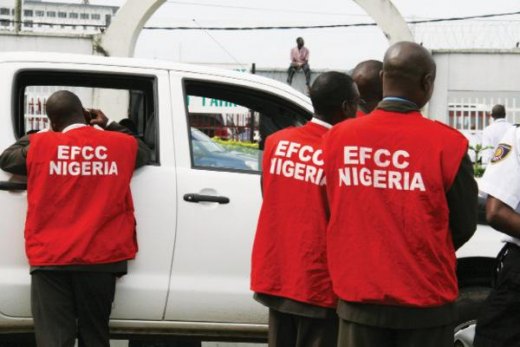Uche Usim, Abuja
Fraudsters and other criminals in the capital market have been advised to quit their unwholesome trade as the Securities and Exchange Commission (SEC) and the Economic and Financial Crimes Commission (EFCC) have joined forces to tackle them headlong.
This collaboration was reached when the management of the SEC met with top EFCC officials at its headquarters in Abuja at the weekend.
The acting Director-General of SEC, Ms. Mary Uduk who led the team, said the visit was necessary in order to close ranks in the face of re-awakening of Ponzi schemes, cybercrime and other fraudulent activities that have engulfed the market in the last few years.
Uduk also stated that the visit was aimed at revisiting the Memorandum of Understanding (MoU) signed between the SEC & EFCC on January 19, 2017.
According to Uduk some areas where the MoU seeks Cooperation of both Agencies includes training, secondment of middle cadre officers of the SEC to the EFCC and those of the EFCC to the SEC, cross boarder asset seizure, repatriation of stolen funds from the Capital market and prosecution of offenders amongst others.
“We have had reasons to work together on some cases in the past. There is no better time for the SEC and EFCC to collaborate more closely than now” she added.
Responding, the Ag. Chairman of the EFCC, Mr. Ibrahim Magu thanked the Executive Management of the SEC for the gesture and stressed the need to strengthen collaboration between both agencies.
Magu also assured the SEC team of the EFCC’s support in ensuring that clauses embedded in the MoU are executed given the magnitude of fraudulent activities currently on going in the country.
He reiterated the need for joint training of staff of both organizations, and said there is need to review the MoU in order to achieve both organisation’s objectives.
On the rising spate of Ponzi schemes in the country, Magu stressed the need for more sensitization campaigns between the SEC and the EFCC to ensure unsuspecting Nigerians do not continue to lose their hard earned money.
| ReplyForward |

